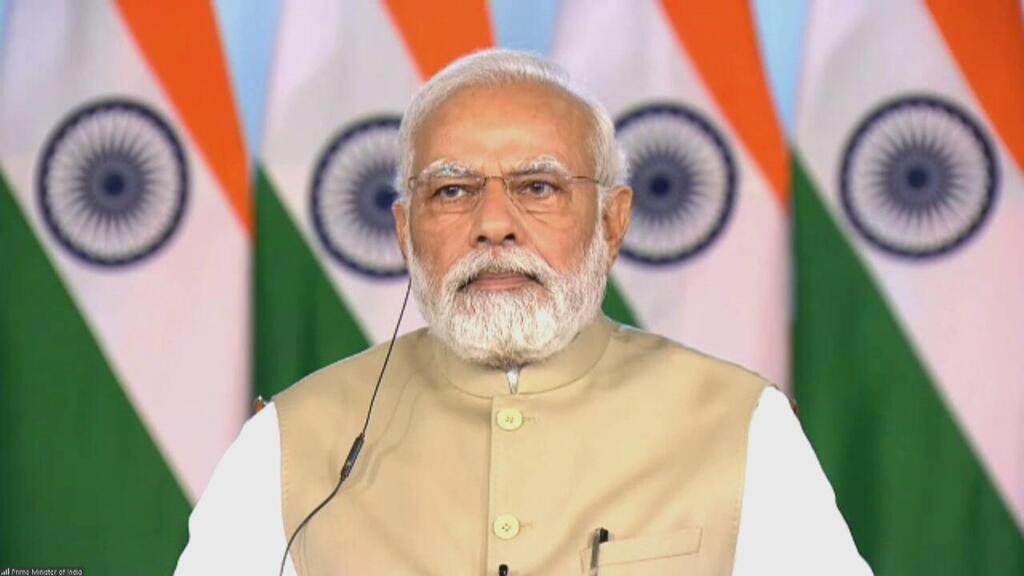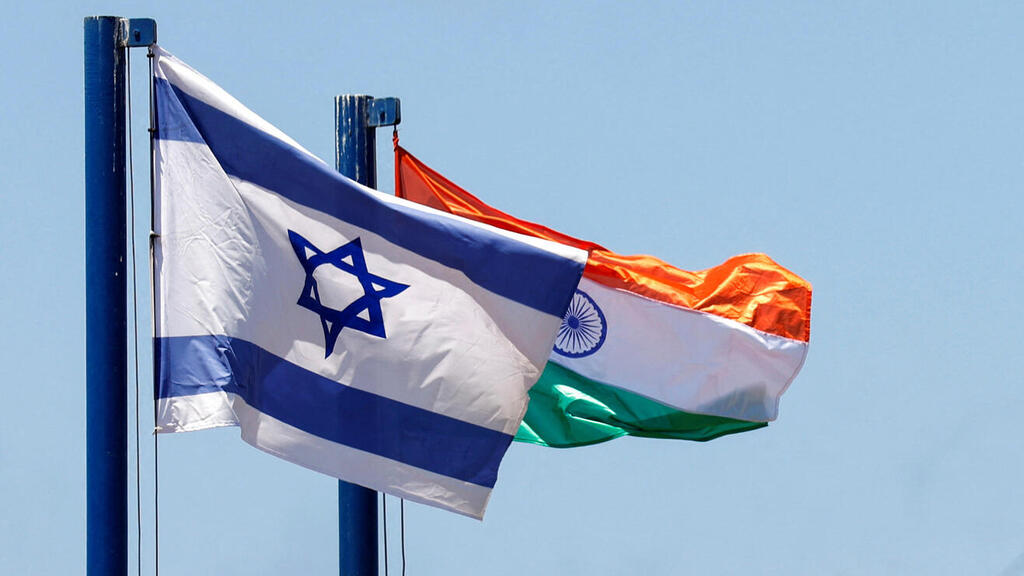The deepening of Israel-India relations and hope for a future free trade agreement (FTA) brought out Israel’s political and economic elite on Monday night for a gala celebration of the 75th anniversary of India’s independence and 30 years of diplomatic relations between the two countries.
President Isaac Herzog and Opposition Leader Benjamin Netanyahu were among the guests at the event, hosted by the Indian Embassy to Israel at the Dan Tel Aviv Hotel. Prime Minister Yair Lapid made a virtual appearance via video.
5 View gallery
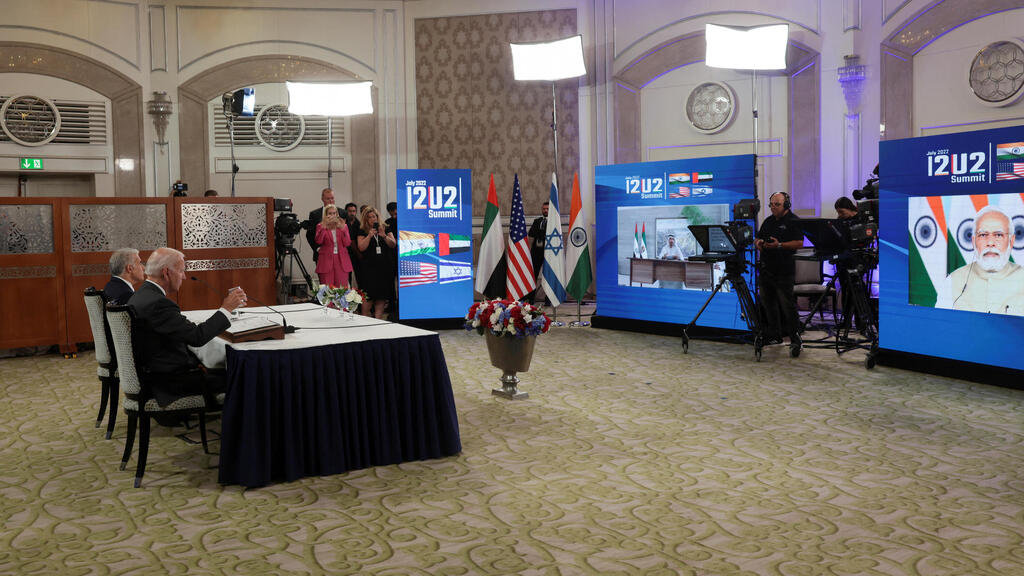

Prime Minister Yair Lapid and U.S. President Joe Biden in a meeting with Indian Prime Minister Narendra Modi
(Photo: Reuters)
Herzog addressed the gathering, saying, “India’s influence as a regional and global power is steadily on the rise, and I am confident that the greater your level of engagement, the greater the positive change.”
The Israeli president, emphasizing the strategic partnership between the two nations that has been fostered over the past three decades, went on to comment: “Israel and India both aim for equality and prosperity, we both face challenges, internal and external, and we are both open to expanding partnerships.”
Sanjeev Singla, Indian ambassador to Israel, noted that it was during the presidency of Herzog’s father, Chaim Herzog, “that our bilateral diplomatic ties were upgraded to full ties.”
Anat Bernstein-Reich, CEO and co-founder of BDO Israel-India Investment Banking and Consulting, said, “It’s really obvious that this as a relationship will continue to grow from strength to strength.”
5 View gallery
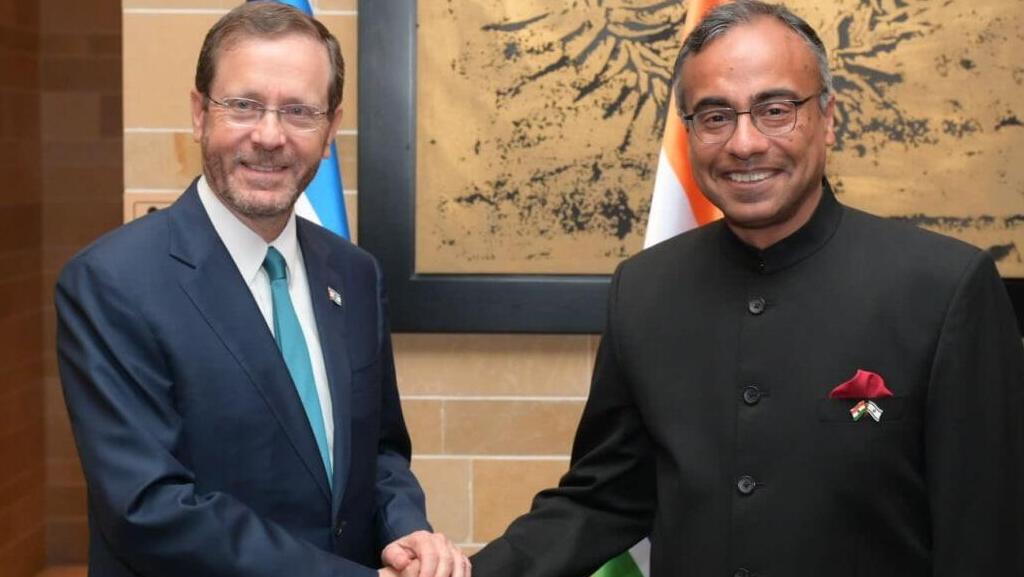

President Isaac Herzog and Indian ambassador to Israel Sanjeev Singla
(Photo: Amos Ben Gershom, GPO)
Bernstein-Reich explains that during the overlapping administrations of India’s Prime Minister Narendra Modi and Netanyahu, there was a remarkable positive change. She says that even if India’s political leadership changes, which seems unlikely in the near future, these relations will last, commenting, “The relationship is built on a strong infrastructure; there is a good foundation to continue the collaboration between the two countries.”
Dr. Oshrit Birvadker, a senior researcher at JISS and expert on India’s foreign policy, said, “India needs Israel to improve its economy. One of the most important things India needs is technology, especially when comes to important reforms in agriculture that could enable India to become the breadbasket of the world.”
Professor Harsh V. Pant, vice president of the Observer Research Foundation, New Delhi, agreed, saying that, “Israel’s help in agricultural and water conservation in India is a major part of the relationship. … There is a domestic consensus today in India that Israel is a very important partner.”
Birvadker added, “Israel needs India, too. India is buying arms and defense equipment worth billions of dollars from Israeli companies and with changing geopolitical dynamics, Israel is increasing its engagements in this region and the size of the Indian markets hold enormous potential for Israeli-made products.”
David Keynan, vice chairman of the Federation of Indo-Israeli Chambers of Commerce, said that India’s relations with Israel “have grown tremendously with the bilateral trade crossing $7.8 billion.” Keynan views the attainment of an FTA as a goal that would further expand the trade and wealth coming into India and Israel.
Birvadker further posited that this growing relationship served not only economic but diplomatic interests, as well. “The Abraham Accords and I2U2 [an economic bloc comprising India, Israel, the United Arab Emirates, and the United States] are a result of the changing dynamics in the region. Israel is looking to normalize relations with Muslim countries and India can be a great mediator for that – for example, normalizing relations with Bangladesh.”
Pant noted that Israel’s and India’s differing stances on how to respond to regional threats from Iran and China may cause “friction in future relations” but ultimately “it is unlikely these issues will be disruptive to the Israel-India relationship today.”
He commented that it was shared technological interest that was driving this relationship “given that Israel has developed such a niche in high-end technology and India is looking for this to happen within India. … This is something the Israelis can use to build upon their economic relationship with India.”
5 View gallery
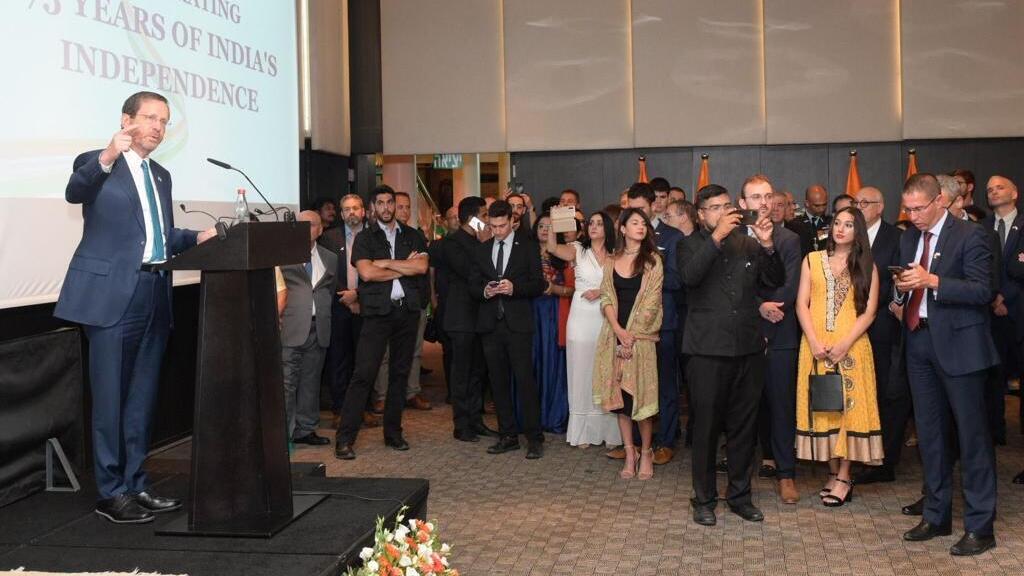

President Isaac Herzog during celebrations of India's 75 years of independence
(Photo: Amos Ben Gershom, GPO)
Bernstein-Reich sees the two governments aiming for an FTA. The idea has been in discussion for almost 10 years, but she thinks it could happen any time now, given that both sides are “heavily investing and growing” in each other’s economies.
Bernstein-Reich attributed the success of trade talks to shared values and interests. “We are both democracies, both fight Islamic terror, and we share similar values of family and education. Both countries put the focus on IT and innovation in this regard.”
Pant agreed that an Israel-India FTA was imminent. India’s drive to forge FTAs was gathering momentum, he said, pointing to trade agreements with the UAE and Australia in the last three months, and a plan to conclude a similar agreement with the UK in November, to be followed by FTAs with the European Union and Canada. All of this was an indication of New Delhi’s “great willingness to conclude a trade agreement [with Israel] in the next year or so,” despite India being “a country where free trade agreements are very difficult to conclude.”
With Israeli companies providing vital desalination and water management technologies to India, combined with a shared interest in R&D projects, and collaborative efforts in defense, the two nations are targeting signing a deal in the coming months. Israel’s display of support for India during its 75th independence anniversary was just a further sign of a growing push to deepen the Israel-India relationship.
The story was written by Isla-Rose Deans and reprinted with permission from The Media Line


